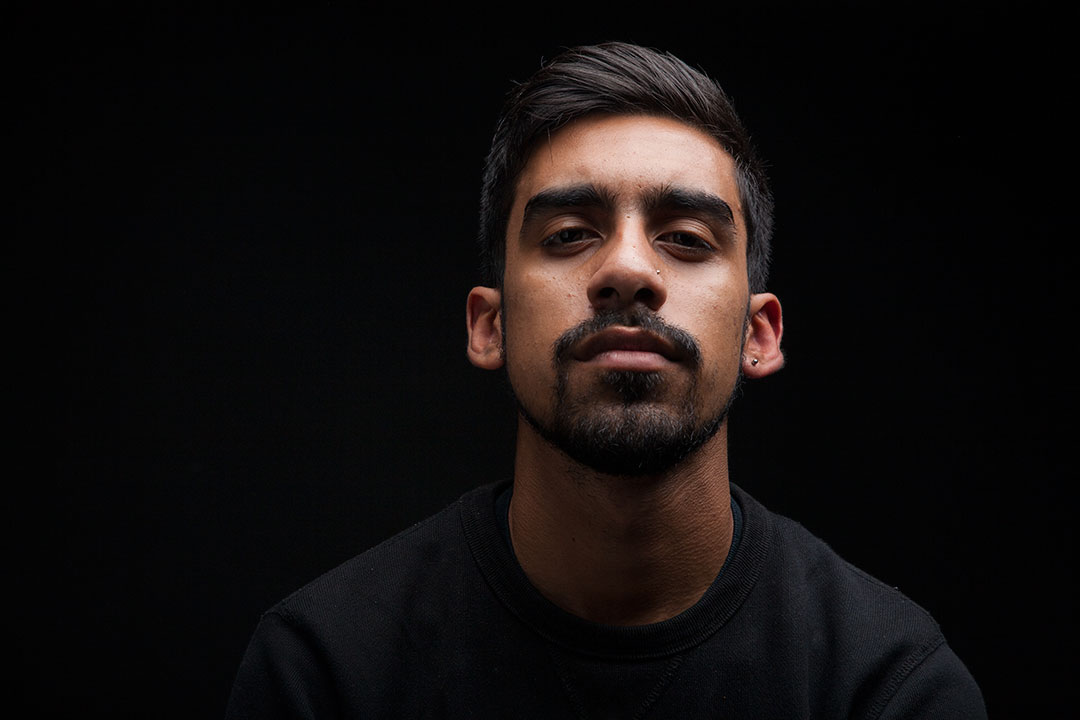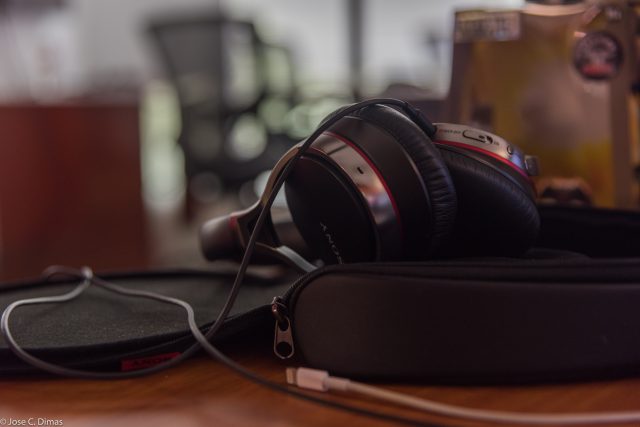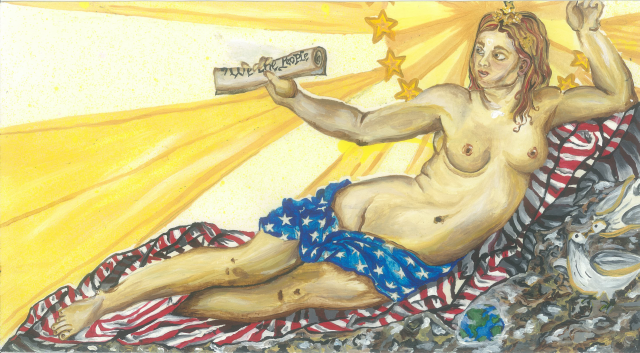Photo by Martin Bustamante
By Oscar Gutierrez
[dropcap size=”50px”]O[/dropcap]ne of the most important pieces of advice my mother ever gave me was “It is better to ask for forgiveness than to ask for permission.” I never understood how my mother would benefit from this considering I could have easily ruined her life, but luckily, I turned out pretty okay. As the years went by I started making more sense of the world around me as well as the person I was becoming.
At the beginning of the year I got my hands on a demo from a band that called themselves Girls Living Outside Society’s Shit, or G.L.O.S.S. for short. I found out about the band through Maximum Rocknroll’s New Blood section where they introduced themselves as “queers, trans women, women of color, gender queer femmes, feminists,” who “love hardcore and are sick of being sidelined and misrepresented.” Of course, I made it a point to listen to the demo the very next day.
The first track blasted through my speakers as vocalist Sadie Switchblade yelled the words:
“They told us we were girls, how we talk, dress, look and cry, they told us we were girls, so we claimed our female lives, now they tell us we aren’t girls, our femininity doesn’t fit, we’re fucking future girls living outside society’s shit!”
I remember the powerful music that accompanied these words and how I had never heard anything like it. It was fast, aggressive and pushed me out of my element. There was something significant about me starting my year with this demo. American author and anthropologist Zora Neale Hurston would describe it best by saying “there are years that ask questions and years that answer.” Previously I had been home for the winter break and had attempted to come out to my mother after multiple sessions of crying and explaining the difficulty of being in such a position to my sister who I told sometime in the Fall.
G.L.O.S.S. gave me a year that answered many questions about my identity. I always made sure to apply my mothers advice about never asking for permission and allowing myself to ask for forgiveness, but within the context of my identity, I did not see such opportunity. G.L.O.S.S. was redefining the words of my mother and allowed me to realize that in addition to not asking for permission, I also wasn’t obligated to ask for forgiveness, ever. This band was unapologetically performing hardcore punk music, most popularized by cisgender, heterosexual and white men.
Let’s be clear with this though, G.L.O.S.S. is doing this for the “outcasts,” and no, it does not simply mean anyone “feeling” left out, because let’s be real, even the most privileged feel this at times. They make it clear that they’re talking about the rejects, girls, queers, downtrodden women who have shed their last tears, fighters, psychos, freaks, femmes and all the transgender ladies in constant transition as listed in their song “Outcasts Stomp.”
“Like, it’s such a rare thing it’s like finding a fucking unicorn in the woods and once you find it some Cis Het White dude jumps on the unicorn’s back and rides that thing all over the woods screaming about how awesome unicorns are,” wrote Imogen Greer Reid, in an article titled Dear Cis People: Can we Talk About G.L.O.S.S for a Minute?
Additionally, in the process of completely appropriating a movement that doesn’t belong to cisgendered, 0heterosexual white men, they have been more explicit with their attacks against G.L.O.S.S. Just last week the band Whirr, posted some transphobic tweets claiming that G.L.O.S.S. was “just a bunch of boys running around in panties and making shitty music.” The tweets gained wide attention from those in and out of the punk community. Whirr’s future wasn’t guaranteed and moments later, their label, Run for Cover Records, dropped them. The next day Whirr seemed to regret their comments and posted a statement saying a friend got a hold of their Twitter and tweeted those statements. Not only was this met with a multitude of photos of Shaggy’s “It Wasn’t Me” singles and screenshots of the infamous “Why The Fuck You Lyin?” video, but also a very surprise visit from Sadie Switchblade, vocalist of G.L.O.S.S. who made a Twitter specifically for the situation.
It’s responses like the ones stated above that make me confident about the future of punk in terms of queer and trans people of color. However, the statements made by Whirr also show how far behind we are, not only on educating people about transphobia, but also calling out those who don’t feel as though they should listen. To me, G.L.O.S.S. is a representation of understanding that I don’t need to ask for forgiveness if I didn’t ask for permission.
To live unapologetically, but also at the frontlines of what may threaten me the most, is an important revolutionary act. We need more of these acts that bring queer and trans people to the frontlines of punk and recognize them as key individuals in the construction of this subculture. It takes work, listening, and understanding, but most importantly from the people G.L.O.S.S. does not represent, it mainly means, taking a step back and letting girls be girls.
*Note: This column is solely my experiences with identifying with G.L.O.S.S. and is not intended to speak for anyone, but myself. I write this column as a cisgendered queer man of color and recognize that my experience is solely mine.







